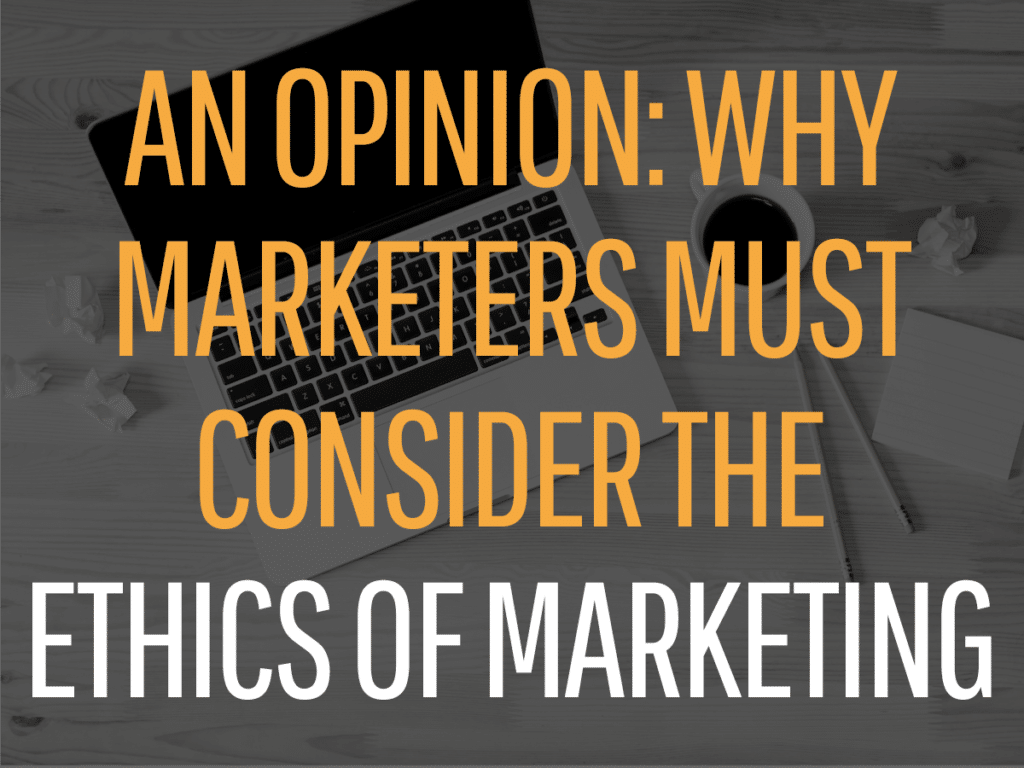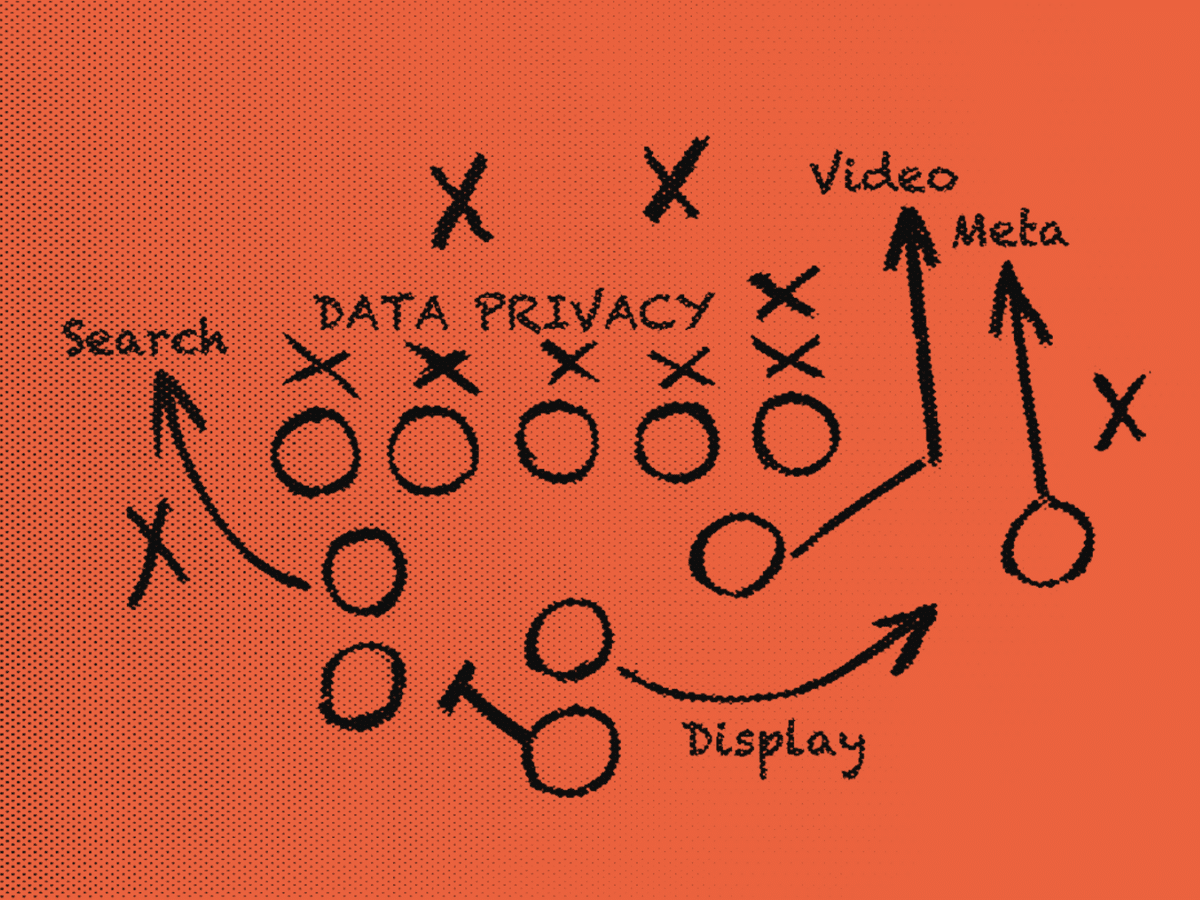The Ethics of Marketing
Growth marketing: what felt like an exciting, unexplored world fifteen years ago is now driven by data, algorithms, and A/B testing. In recent years, data companies, like Cambridge Analytica, for example, have made a splash in the news — and not in a good way.
If you’re one of the thousands of people who have watched “The Social Dilemma” on Netflix, and you work in marketing, like me, I’m curious to know your reaction. Do you feel a pang of guilt when you define or launch a new ad campaign? Do you get the same thrill when you comb through data in your analytics platform?
Conversely, we’re not just marketers: we’re also consumers. How do you feel when you see ads that are mistargeted, or deeply personal? What crosses your mind when you see an ad for a product you’ve never searched for and have only spoken about — or even just thought about?
I’m not here today to tell you to put a pause on your advertising, but I do want to talk about the ethics of marketing, how we’re reaching people, and how we’re using the power of persuasion to sell products and build new platforms.
As marketers, we rely heavily on algorithms to help us deliver our content to the right audience. But from an ethical perspective, algorithms can be problematic.
Algorithms are, however, ethically challenging not only because of the scale of analysis and complexity of decision-making. The uncertainty and opacity of the work done by algorithms and its impact are also increasingly problematic. Algorithms have traditionally required decision-making rules and weights to be individually defined and programmed ‘by hand’. While still true in many cases (Google’s PageRank algorithm is a standout example), algorithms increasingly rely on learning capacities (Tutt, 2016, as cited in Mittelstadt, et al, 2016).
Facebook vehemently disagrees with the portrayal of algorithms in “The Social Dilemma.” In a release posted after the launch of the documentary, they say:
“Algorithms and machine learning improve our services. For example, at Facebook, we use them to show content that’s more relevant to what people are interested in, whether it’s posted from friends or ads. Portraying algorithms as ‘mad’ may make good fodder for conspiracy documentaries, but the reality is a lot less entertaining (Facebook, 2020).”
If you’re second-guessing your marketing programs because of the impact of “The Social Dilemma”, you’re not alone. In my daily interactions with clients, I’ve noticed an uptick in conversations about the ethics and morality behind what we do, i.e., the cadence at which we target potential customers and repeat customers and where we meet them. Are we finding them in the right channels, and is our messaging landing? Do we over inundate our subscribers with irrelevant messaging they cannot relate to? Are we even talking to the right people?
I posed some of these questions on my LinkedIn profile and heard some interesting feedback. One data scientist, who messaged me privately and spoke on the condition of anonymity, said the following about their work:
…we follow all the data protocols to make sure we adhere to laws and are ethically collecting data. What I’m struggling with is the need to support companies like FB, who should not be rewarded with our ad dollars for their behavior. And frankly, I don’t want to be working on projects that are rewarding them, even if the monies are small. I want to leave marketing and work on something I can feel good about. DataKind is an example of a company that’s striving to do work on using data for good.
On a personal level, in some ways, I feel a bit trapped by social. I use TW to catch news updates. IG is my zen for cat photos. And FB is the only way to keep in touch with extended family, plus I have a few groups that I’m part of that are my zen too. So in order for me to break with the platforms, I have to cut all that out. I’ve been cutting back on time spent on the platforms. Maybe it will be a gradual exit, I’m not sure yet.
Children’s author and publishing expert Nicholas Courage had this to say:
I canceled all FB and Instagram advertising a little over a year ago and am determined not to give any more money to that corporation. I’m not running paid campaigns on Twitter, either – but I never felt those were particularly effective, anyway. I do still run search campaigns for a couple of clients and I’m not totally convinced that I want to keep doing those… but Google feels like the lesser of three evils at this point. Personally, I still like Instagram, but extremely ready for a pivot away from social media.
So, what’s a business to do? My message to brands is this: meet your customers where they are, and encourage good habits.
You don’t need to turn away from social media. Yes, your digital presence is important, and social channels should be updated with regular frequency. Your ads should be hyper-targeted, but relevant. But where else do your customers live? Segmented marketing automation with tailored messaging can improve your inbox engagement. Direct mail is making a comeback, and plenty of companies offer advanced data appending. A well-researched, thoughtful content marketing and search engine optimization strategy can find even the most obscure customer. And when your content sends the right message, your customers will find you, even if it’s not on social media.
But always – ALWAYS – consider your efforts. Are they helping society as a whole, or are they fueling the attachment to platforms that often tie it to declines in mental health and depression (Pantic, 2014)?
Consider taking the certification program from the Digital Wellness Institute. Encourage mindful conversations. Promote your customers’ wellbeing. Be genuine. With the right ethics in place, you can still reach your audience and hit your business goals. But as an added bonus, you’ll be able to feel good about what you’re doing, too.
If you want to discuss the ethics of marketing in your practice, reach out via our chat. Or chime in with ways you’re working on improving your customer experience with genuine, thoughtful marketing in the comments below.






